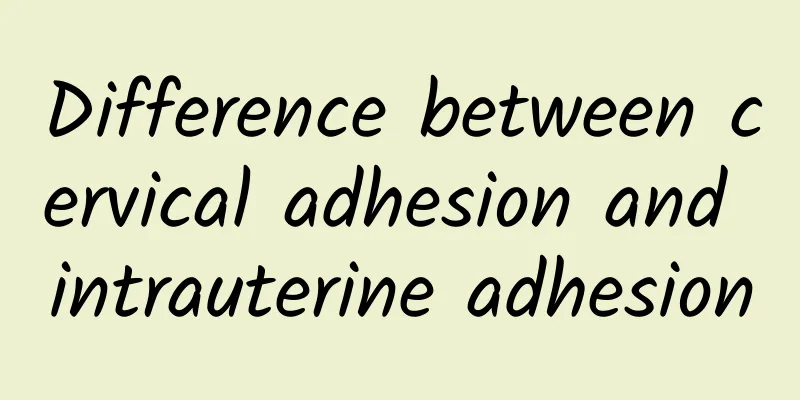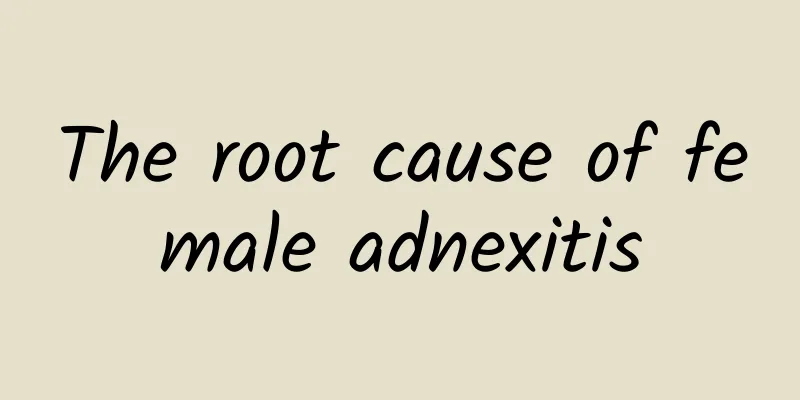Difference between cervical adhesion and intrauterine adhesion

|
The main difference between cervical adhesions and intrauterine adhesions is the location and symptoms, and the treatment methods are also different. Cervical adhesions occur in the cervix and are often manifested as abnormal menstruation or infertility; intrauterine adhesions occur in the uterine cavity, and common symptoms include decreased menstruation or amenorrhea. Both require drug treatment, surgical treatment or other auxiliary treatments based on the severity. 1. The causes of cervical adhesion and intrauterine adhesion are different. Cervical adhesion is mostly caused by cervical surgery, infection or inflammation. Repeated stimulation of inflammation leads to fibrosis of cervical tissue and the formation of adhesion. Intrauterine adhesion is common after intrauterine surgery, such as artificial abortion, curettage, etc. The damaged endometrium heals poorly, forming fibrous tissue adhesion. Intrauterine infection or endometriosis may also cause adhesion. 2. Symptoms vary. Cervical adhesions may cause increased or decreased menstrual flow, and some patients may experience dysmenorrhea or infertility. Symptoms of intrauterine adhesions are mainly a significant decrease in menstrual flow or amenorrhea, which may affect normal pregnancy in severe cases. Some patients may also experience periodic lower abdominal pain. 3. The diagnosis methods are slightly different. Cervical adhesions can be diagnosed through gynecological examination, ultrasound or hysteroscopy, and the doctor can directly observe the adhesions in the cervix. The diagnosis of intrauterine adhesions mainly relies on hysteroscopy or hysterosalpingography, which can directly show the scope and degree of intrauterine adhesions. 4. Treatment methods are selected according to the severity of the disease. Mild cervical adhesions can be treated with drugs, such as local use of estrogen ointment or antibiotic ointment to promote tissue repair. Moderate to severe patients require cervical dilation or hysteroscopic separation. The treatment of intrauterine adhesions is mainly hysteroscopic surgery, and estrogen therapy is required after surgery to promote endometrial regeneration. Some patients may also need to place an intrauterine device or balloon stent to prevent adhesions again. 5. The focus of preventive measures is different. To prevent cervical adhesions, you should avoid frequent cervical surgeries, treat cervical inflammation in a timely manner, and maintain personal hygiene. To prevent intrauterine adhesions, you need to reduce intrauterine surgery, especially after artificial abortion or curettage, and use antibiotics and estrogen as prescribed by the doctor to promote endometrial repair. Although both cervical adhesions and intrauterine adhesions involve the female reproductive system, their causes, symptoms and treatment methods are different. Regardless of the type of adhesion, timely diagnosis and treatment are key to avoid affecting reproductive function. Patients should choose a suitable treatment plan based on the doctor's advice, and pay attention to postoperative care and preventive measures to reduce the risk of recurrence. |
<<: What are the symptoms of inflammation after abortion?
>>: Is there a relationship between dysmenorrhea and uterine malformation?
Recommend
How much does it cost to see a doctor for congenital absence of vagina?
Women with congenital absence of vagina hope to c...
What is the difference between curettage and abortion? Is curettage equivalent to an abortion?
What is the difference between curettage and abor...
Get rid of elephant legs in summer! Treat edema symptomatically
Most people probably think that "edema can b...
What are the benefits of eating oatmeal for uterine fibroids? Is it good to eat oatmeal for uterine fibroids?
Uterine fibroids are a common benign tumor in gyn...
How does Traditional Chinese Medicine treat Bartholinitis?
Traditional Chinese medicine dialectical treatmen...
Why does uterine fibroids grow after cesarean section? What causes uterine fibroids after cesarean section?
Why does uterine fibroids grow after cesarean sec...
Causes of recurrent vaginitis in women
What are the reasons for the recurrence of female...
What are the four major enemies of uterine fibroids? What are the foods that are the enemies of uterine fibroids?
What are the four major enemies of uterine fibroi...
Is fat evil? The answer is very different from what you think! Decoding white fat vs. brown fat
Is fat all evil? The answer may be very different...
How to treat iron deficiency anemia caused by menorrhagia
Under the guidance of a doctor, iron deficiency a...
Patients with ovarian cysts should avoid cyst rupture
The causes of ovarian cysts may be due to environ...
What are the obvious symptoms of vaginal candidiasis?
What is candidal vaginitis? What are the symptoms...
What are the preventive measures for irregular menstruation?
Irregular menstruation is one of the common probl...
Why do people sweat after abortion?
Artificial abortion refers to artificial abortion...
Experts introduce the treatment methods for female uterine fibroids
As the number of patients with uterine fibroids i...









